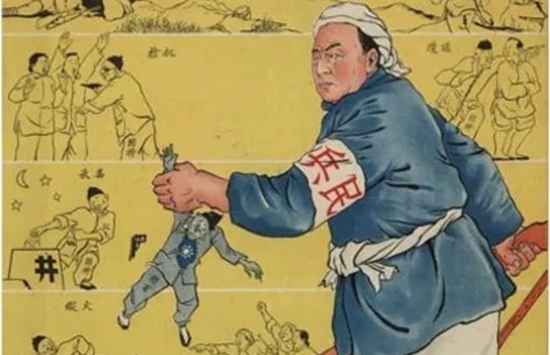
Like other governments, the government of China churns out lots of laws.
Some of these laws may govern areas where knowledge of the law is helpful because the law is relatively specific and delimited, referring to such things as residency requirements, property leasing, the mechanisms of program benefits. But when it comes to anything about the scope of political authority, to what exactly the state may do the individual, all of China’s laws seem to amount to the same thing: the state can come down on you like a ton of bricks whenever it pleases for any reason.
No limits
Such laws tend to imply or declare that there are no limits on state power. But this is not a new development. Why does the Chinese state keep issuing laws that more or less simply repeat its assertion of all-encompassing state authority over the individual?
Maybe because the Chinese dictator, Xi Jinping, and others in the government want to pretend for propaganda purposes that the law is objective, intelligible, and fair, since after all it is being announced and articulated, however superfluously. Maybe as a form of chest-thumping. Maybe for the intimidation value, in hopes that anyone pondering whether to resist state power even a little bit will now think longer and harder about doing so and in the end cower before the newly stressed threat.
Bitter Winter’s Hu Zimo says that a new Chinese law about guarding state secrets that comes into effect on May 1, 2024 “expands the field of secrets to everything the CCP decides is a secret.” But isn’t it already the case that in the eyes of the Chinese Communist Party, what counts as a secret is “everything the CCP decides is a secret”?
Under the impending new law:
If you divulge a state secret in China you will remain in jail for several years and may risk even the death penalty. So, you want to know what exactly a state secret is. The problem is—this information is secret.
If this gives you, as a foreign reader, a headache, imagine the situation for Chinese citizens and for foreign companies operating in China. The latter have already seen last year a series of arrest of their Chinese employees accused of trying to obtain or divulging state secrets. Now everybody has to deal with the new “Law on Guarding State Secrets” coming into effect on May 1, 2024….
The law defines state secrets as matters that relate to the security and interests of the state in various fields. The problem is that what is a state secret is very much unclear, as only broad categories are indicated. Indeed, the law expands the definition of state secrets to include matters that have not been defined as secret by any authority but may still affect the security and interests of the state if disclosed.
What happened last year, the year in which there was “a series of arrests of…Chinese employees accused of trying to obtain or divulging state secrets”? Did the employees have any way of knowing that they were doing something that the state regarded as a punishable offense?
We must keep in mind that China is a country where you can be imprisoned for “spreading gossip” and “stirring up trouble” and having a wedding without any piano playing. How can the scope of the arbitrary power thus implied be expanded? It is already at infinity.
Chilling effect
Hu says that the secretive new law about secrets
may have a chilling effect on the freedom of expression, information, and communication in China, especially of journalists, scholars, activists, and lawyers, who may face more restrictions and risks in their work. The law may also affect the cooperation and exchange between China and other countries and regions, especially in the areas of business, science, and technology as it may create more barriers and uncertainties for foreign entities and individuals who deal with matters at risk of being defined as “state secrets.”
Perhaps Hu is right, and more of the same isn’t exactly the same. Especially if the impending expansion or pseudo-expansion of the state’s doctrine about state secrets serves “to prevent any information detrimental to the CCP from being shared on social media or leaked abroad—including to Bitter Winter.”
Bitter Winter may lose some informants. But I suspect that it will continue to get plenty of information about the evil doings of the Chinese party-state. There are always a few people who seek to make the truth known regardless of risk.





